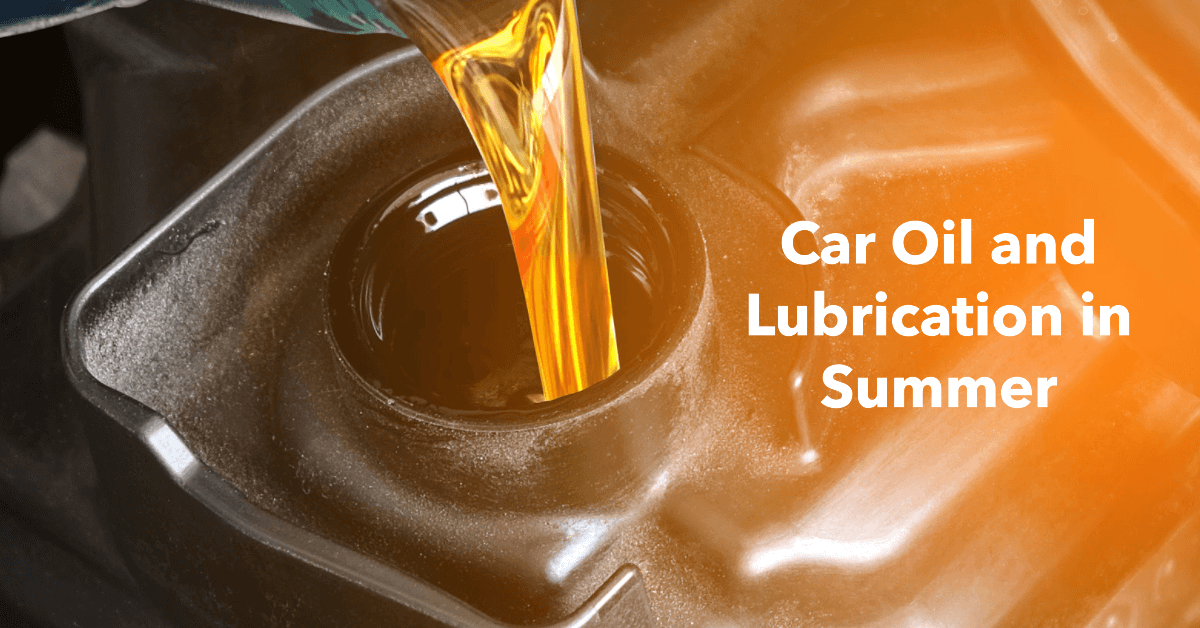Summer is here, and it’s time to hit the road for a long-awaited road trip. Before you embark on your journey, it’s important to make sure that your car is in good working condition. One of the most critical aspects of car maintenance is oil and lubrication.
Let’s discuss everything you need to know about car oil and lubrication in summer.
Table of Contents
Why is Oil Important for Your Car?
Car oil plays a critical role in keeping your engine lubricated and running smoothly. It reduces friction between moving parts, which helps to prevent wear and tear. In addition, it helps to keep the engine cool by carrying heat away from the engine’s components.
Regular oil changes are essential to ensure that your car’s engine stays healthy and functions properly.
How Does Heat Affect Your Car Oil?
Summer temperatures can be brutal, and they can have a significant impact on your car oil. The heat can cause the oil to break down, which reduces its ability to lubricate your engine. When this happens, your engine is at risk of damage due to increased friction between its moving parts.
To combat this problem, you should use a high-quality synthetic oil that is specifically formulated for use in high-temperature conditions. Synthetic oils are designed to resist thermal breakdown, which means they can maintain their lubricating properties even in extreme heat.
How Often Should You Change Your Oil in Summer?
In general, you should change your car oil every 5,000 to 7,500 miles, depending on your driving habits and the type of oil you use. However, during the summer months, it’s a good idea to change your oil more frequently. The heat can cause the oil to break down faster, which means you’ll need to change it more often to ensure that your engine stays properly lubricated.
If you’re planning a long road trip during the summer, it’s a good idea to have your oil changed before you go. This will help to ensure that your engine is well-lubricated and running smoothly for the duration of your trip.
What Type of Oil Should You Use in Summer?
When it comes to choosing the right oil for your car in summer, there are a few things to consider. First, you’ll want to choose an oil that is designed for use in high-temperature conditions. This typically means using synthetic oil, which is formulated to resist thermal breakdown and maintain its lubricating properties even in extreme heat.
Second, you’ll want to choose an oil with the right viscosity rating. Viscosity refers to how thick or thin the oil is. In general, thicker oil is better for older cars or those with high mileage, while thinner oil is better for newer cars or those with low mileage. However, in summer, you’ll want to choose an oil with a slightly higher viscosity rating than you would in cooler weather. This will help to ensure that the oil maintains its lubricating properties even in extreme heat.
What Other Lubricants Should You Consider in Summer?
While car oil is the most critical lubricant in your car, there are other lubricants you should consider in summer. For example, your car’s transmission fluid and brake fluid can also be affected by high temperatures. If these fluids break down, they can cause damage to your car’s transmission or braking system.
To prevent this from happening, you should have your transmission fluid and brake fluid checked regularly, especially during the summer months. If these fluids need to be topped up or replaced, make sure you use a high-quality synthetic fluid that is specifically formulated for use in high-temperature conditions.
How Can You Ensure Your Car’s Lubrication System is Working Properly?
Regular maintenance is the key to ensuring that your car’s lubrication system is working properly. In addition to changing your oil regularly and checking your other fluids, you should also have your car inspected by a qualified mechanic. They can check your car’s lubrication system for any leaks or other issues that could cause problems down the road.
In addition, you can also perform some simple checks yourself. For example, you can check your oil level and condition regularly by using the dipstick. If the oil level is low or the oil is dirty or discolored, it’s time for a change.
You should also pay attention to any unusual sounds or sensations coming from your car. If you notice any unusual vibrations, rattles, or other noises, it could be a sign of a problem with your car’s lubrication system. Have your car inspected by a mechanic as soon as possible to prevent any further damage.
What Happens if Your Car Runs Low on Oil in Summer?
Running low on oil in summer can be a serious problem. Without enough oil, your engine won’t be properly lubricated, which can cause significant damage. In extreme cases, running low on oil can even cause your engine to seize up, which can be a costly and time-consuming repair.
If you notice that your car’s oil level is low or if you hear any unusual sounds coming from your engine, it’s important to have your car inspected by a qualified mechanic. They can diagnose any problems with your car’s lubrication system and perform any necessary repairs to prevent further damage.
Wrapping Up
Car oil and lubrication in summer are essential for keeping your car’s engine running smoothly and preventing damage. By using high-quality synthetic oil, changing your oil more frequently, and checking your other fluids regularly, you can ensure that your car stays healthy and performs at its best during the summer months.
Remember to have your car inspected by a qualified mechanic regularly and to pay attention to any unusual sounds or sensations coming from your car. By following these simple steps, you can keep your car running smoothly and enjoy a worry-free summer on the road.


